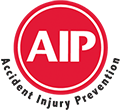Ammonia (NH3) is a colorless gas with a characteristically pungent smell that is common in nature and widely used for the following: fertilizers, cleaners, fermentation, food products, refrigeration, remediation, fuel, stimulants, textiles and woodworking.

Ammonia (NH3) is a colorless gas with a characteristically pungent smell that is common in nature and widely used for the following: fertilizers, cleaners, fermentation, food products, refrigeration, remediation, fuel, stimulants, textiles and woodworking.
Ammonia is both caustic and hazardous in its concentrated form. Global production of ammonia is over 176 million tonne annually and is transported for use in industry via rail and truck.
Due to its hazardous nature and its wide use in industry, ammonia handling should only be conducted by properly trained workers in order to minimize the risk of accidental exposure and injury.
This comprehensive 2-hour Ammonia Awareness Course, is designed to improve the awareness of the hazards of working in an environment where Ammonia may be present.
Course Objectives:
Product use
Classification
Exposure Limits
Hazard Identification
First Aid Measures
Fire or Explosion Data
Accidental Release Measures
Handling and Storage
Exposure Controls and PPE
Properties of NH3
Stability and Reactivity
Toxicological Information
Disposal Considerations
The provision of appropriate health and safety training is an integral part of all health and safety programs and is a key component of due diligence in the workplace. Employers have an obligation.
To properly train their employees and supervisors to ensure that they are competent to perform their jobs, recognize the hazards of the job and understand how to protect themselves from these hazards.
© 2025 coursetakers.com All Rights Reserved. Terms and Conditions of use | Privacy Policy